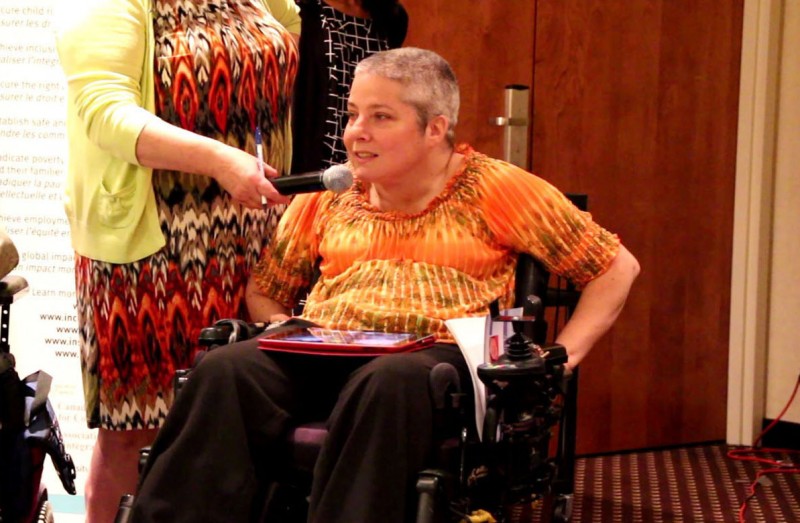October Blog Series

Like many women, I took the idea of cancer screening a little lightly. Even before my accident which rendered me quadriplegic, my appointments with my gynecologist were often very far apart because I wanted to avoid the discomfort of the gynecological exam. I thought I was too young to get cancer anyway! Life would prove me wrong.
When I was thirty three, I developed ongoing abdominal pain, an extremely swollen stomach and excessive sweating. An emergency room doctor quickly diagnosed a bladder infection, and told me it was common in people with quadriplegia. This was despite the fact that after eleven years I knew my own body and I knew that the symptoms I had were not those of a bladder infection. They sent me home with a prescription for antibiotics which I never took.
Only a few months later, a gynecologist discovered a cancerous mass the size of a grapefruit attached to my ovary. I did not receive chemotherapy or radiation therapy because of the lack of statistics on the type of rare cancer I had and to prevent any unknown side effects on my body. We opted for more standard follow up.
However, I am not completely reassured. I have not yet found a place where I can have a full screening without complications. It is always necessary for me to travel with an attendant who is physically able to assist me in transfers. But I now realize the importance of prevention and despite the drawbacks, I continue to follow up with my health care provider as recommended.
My personal recommendation to all women would be to visit their healthcare provider as often as recommended. And health care providers need to better tailor services to make them completely accessible.
In the meantime, health care locations that are already accessible should be clearly identified. At a minimum, the physical location must be accessible, there should be a place to change and go to the bathroom without a problem and an adjustable examination table. Having staff that are trained in providing service to people with disabilities would also be helpful. Ultimately, women with disabilities need to be able to obtain services adapted to our needs, regardless of our physical condition.
Isabelle Ducharme,
Activist, President of the board of directors of Kéroul
